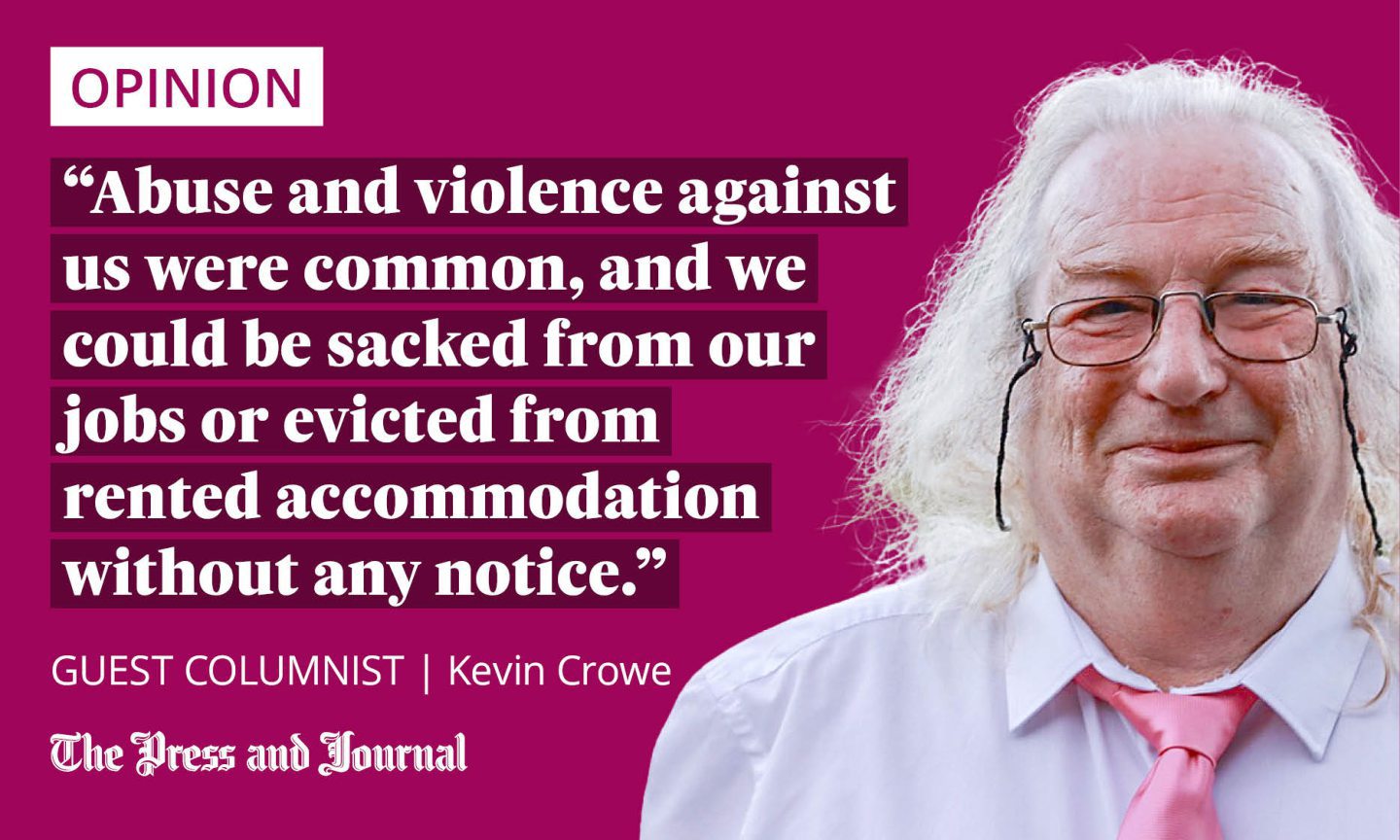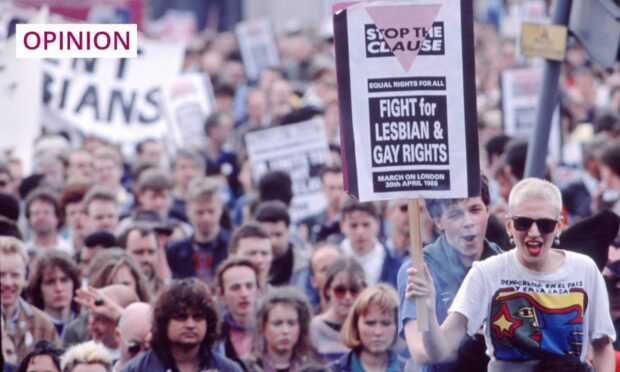Imagine the scene.
It is mid-afternoon on a Saturday in summer. The weather is warm, and the city centre is busy with people enjoying the sunshine. You are waiting at the bus stop on your way home. Then you hear two people shout your name.
You turn round, and next thing you know you are on the ground, blood pouring out of your mouth and nose. The two angry men are standing over you, swearing and shouting homophobic abuse, and no one intervenes.
You flinch, expecting more blows. But, after one more round of verbal assault, they spit at you and walk away. It’s all over in a few seconds, but your memory sees it all in slow motion.
That was me in the 1980s – 1988, to be precise. Panic over HIV and AIDS was at its height, and it was the year the government brought in the infamous Section 28, which severely restricted the ability of local authorities to provide services for homosexuals or those unsure about their sexuality. The new law even described homosexual relationships as “pretended family relationships”.
Abuse and violence against us were common, and we could be sacked from our jobs or evicted from rented accommodation without any notice. The law provided us little protection, and we could experience police harassment. It was a difficult and dangerous time to be openly gay.
I was patched up at A&E, told there was no serious or long-lasting damage, and within a few weeks the black eyes, bruised face and swollen lips had gone. I was lucky: it could have been so much worse. But the mental scars took longer to heal. For years after, I was unable to walk down that street, and whenever I left home, I carried a personal alarm.
I was also lucky that I could identify one of the men. He was charged, prosecuted, fined and ended up with a criminal record. But not before the police wanted to know what I’d done to antagonise them.

Things have changed. Section 28 is a thing of the past, HIV and AIDS can now be treated, the police are less likely to look to blame victims, and we now have laws to protect our rights, whether at work, on the streets or at leisure.
The latest such law is the Hate Crime and Public Order (Scotland) Act, which came into force in April, and which has been subjected to much criticism from some quarters. In particular, some have suggested the legislation will restrict freedom of speech.
Although the act is not perfect (it doesn’t include misogyny, for example), it is nonetheless welcome. And it will have no effect on the rights of anyone to express an opinion, whether in person, in print, online or in broadcasting.
It will not be a crime for someone to tell me that my sexuality is a sin, nor will it be a crime for me to respond by calling them a bigot
It will not be a crime for someone to tell me that my sexuality is a sin, nor will it be a crime for me to respond by calling them a bigot. It will still be within the law for a gender-critical feminist to argue that trans people should not be able to change their birth certificates, as it will be within the law for trans people to publicly criticise such attitudes.
Christians, Muslims, Jews and atheists will still be able to argue with each other as much as they want. It doesn’t stop comedians, satirists and writers from lampooning individuals or groups.
We can all continue to express our views as robustly and as stridently as we wish
Indeed, we can all, regardless of who or what we are, continue to express our views as robustly and as stridently as we wish. If the new law changed that, I wouldn’t be supporting it, because freedom of speech becomes meaningless unless people have the right to express views that others might find offensive and objectionable.
The Hate Crime act does not do this. All it does is outlaw speech and written material that either threatens violence or abuse, or encourages others to threaten violence or abuse. And the bar for prosecutions is set very high.
Also, similar legislation is now law in England, Wales and Northern Ireland. If the Scottish Government deserves any criticism, it should be because it has been slower than the rest of the UK in protecting the rights and safety of vulnerable individuals and groups.
When writer JK Rowling posted on social media calling on the police to arrest her for her views on trans people, the police responded by saying she had broken no law. The only effects of her intervention were to help clarify that we all still have freedom of speech, and to show the willingness of some celebrities to make fools of themselves.
I only wish that such legislation had existed back in the 20th century: far fewer of us would have been victims of violence.
- Kevin Crowe will appear on the bill of LGBTQ+ storytelling show Queer Folks’ Tales on June 20 at Eden Court Theatre, Inverness
Kevin Crowe is a writer and former bookseller living in Wick, Caithness


Conversation